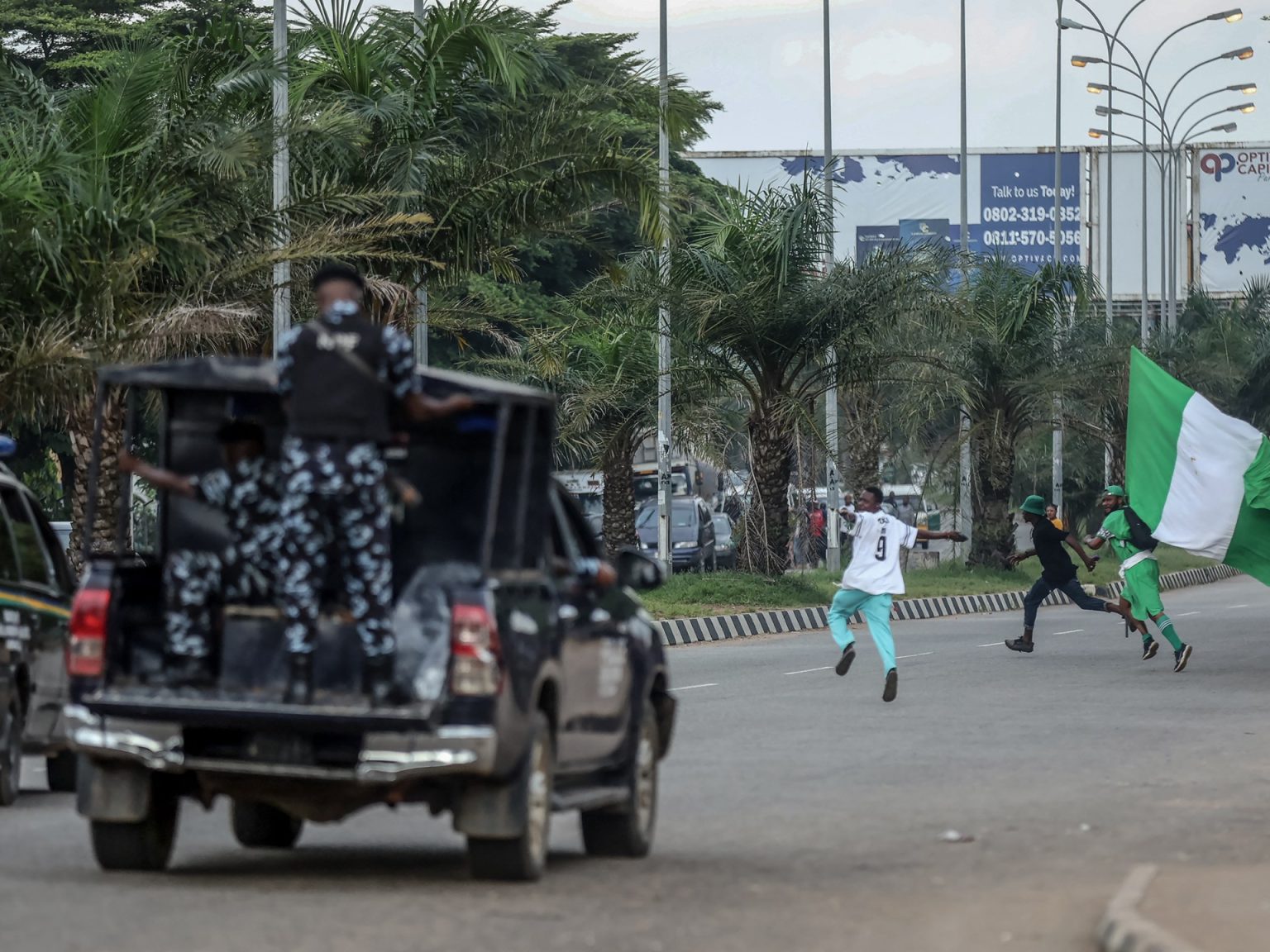Protesters have taken to the streets in several Nigerian cities to denounce the harsh economic conditions in the country and demand change. Despite previous crackdowns by security forces, demonstrators are determined to make their voices heard, calling for an end to hunger, bad governance, and anti-poor fiscal measures recommended by the World Bank. The protests, tagged #FearlessInOctober, coincide with Nigeria’s Independence Day celebrations, highlighting the disconnect between government officials living lavishly and the majority of the population struggling to survive.
The economic hardships in Nigeria have been exacerbated by factors such as inflation, mismanagement, and insecurity, leading to the country’s deepest recession in four decades. Since President Bola Ahmed Tinubu took office in May 2023, the situation has worsened with the removal of fuel subsidies, leading to a sharp devaluation of the naira and increased import costs. Despite efforts to provide relief funding and cash transfers to some individuals, millions of Nigerians still face food insecurity, with high prices making daily survival a challenge for many.
The Tinubu administration’s response to the economic crisis has been criticised for its lack of empathy and focus on austerity measures. Critics point to extravagant spending on official residences and luxurious travel, while ordinary Nigerians struggle to afford basic necessities. The Central Bank of Nigeria has attempted to combat inflation through interest rate hikes, but these efforts have had limited impact. The government’s crackdown on protests and dissent, including severe charges against protesters, has drawn condemnation from human rights groups, who see it as an attempt to silence opposition voices.
Despite the risks of violence and arrest, protesters remain resolute in demanding change and holding the government accountable for its policies. The heavy-handed response by security forces has not deterred demonstrators, who vow to continue protesting until their demands are met. The crackdown on dissent by the Tinubu government is seen as a departure from the pro-democracy stance the president had in the past, raising concerns about the erosion of civil liberties in Nigeria. Human rights groups warn that the severe charges levied against protesters could have lasting consequences for those arrested, even if they are eventually dropped.
The protesters’ determination to push for change and their refusal to be intimidated by security forces reflect a growing frustration with the government’s handling of the economic crisis in Nigeria. The ongoing protests underscore the deep-seated issues facing the country and the urgent need for meaningful reforms to address the concerns of ordinary Nigerians. As demonstrators continue to demand accountability and change, the government faces mounting pressure to listen to their voices and take decisive action to alleviate the economic hardships facing the population.


